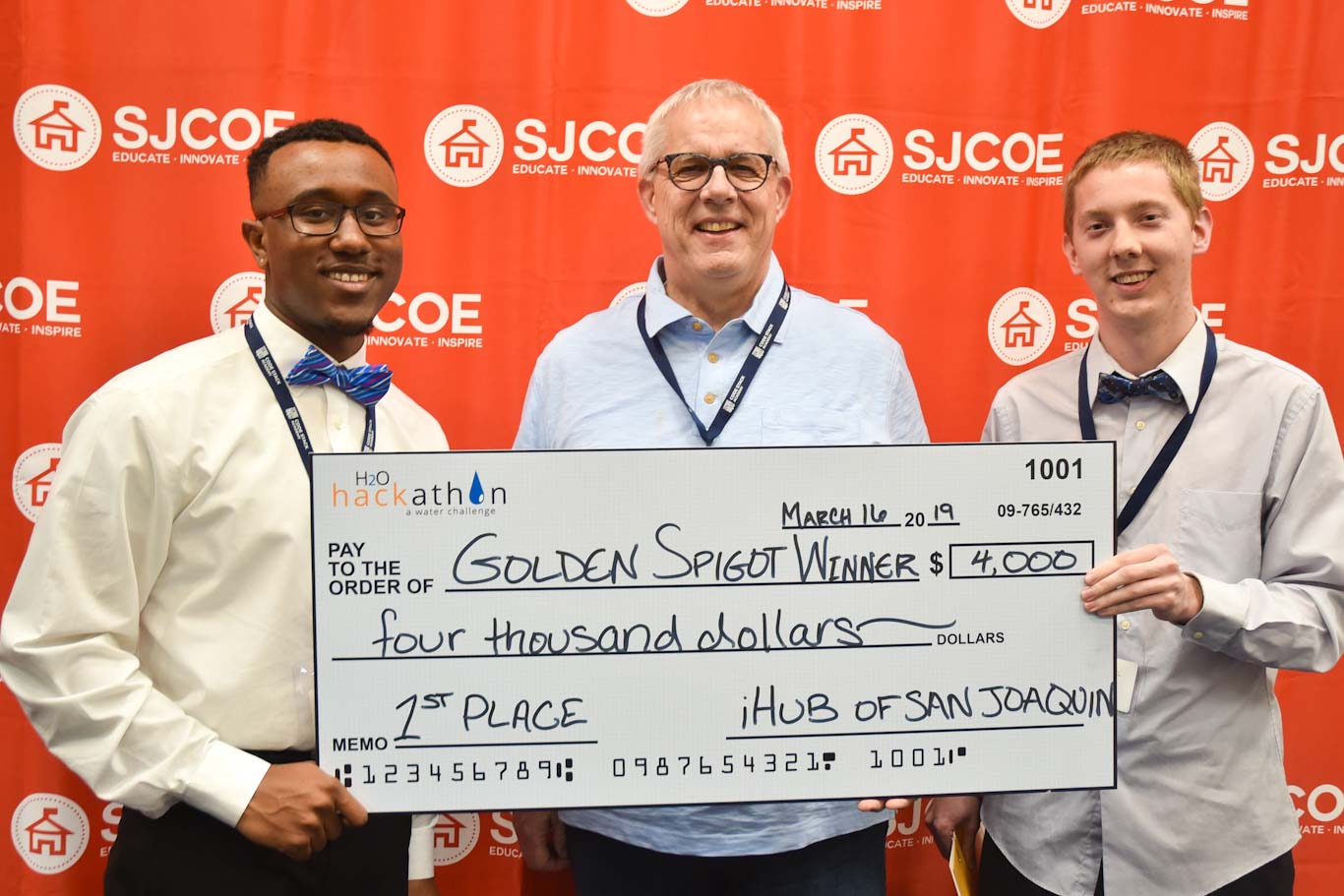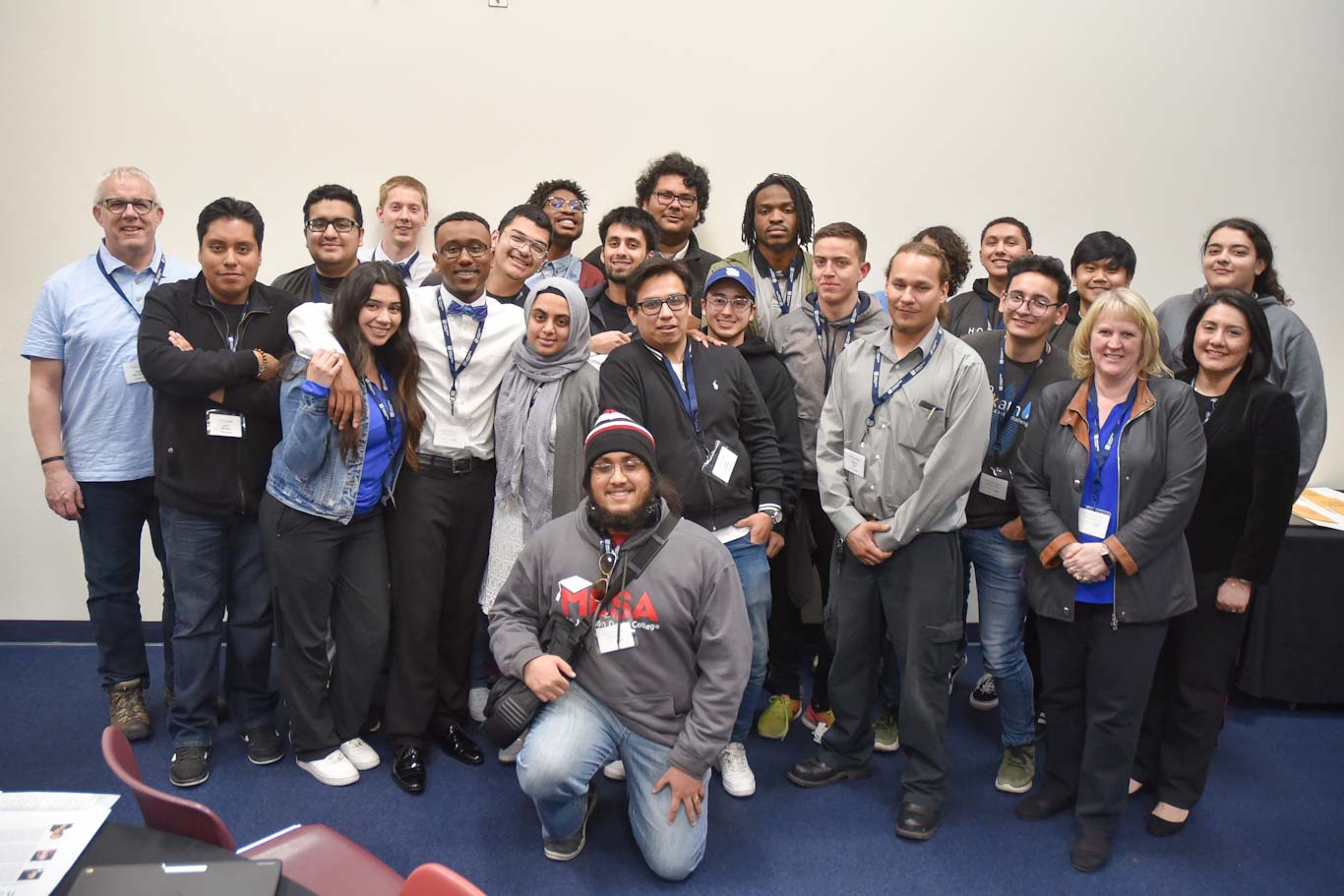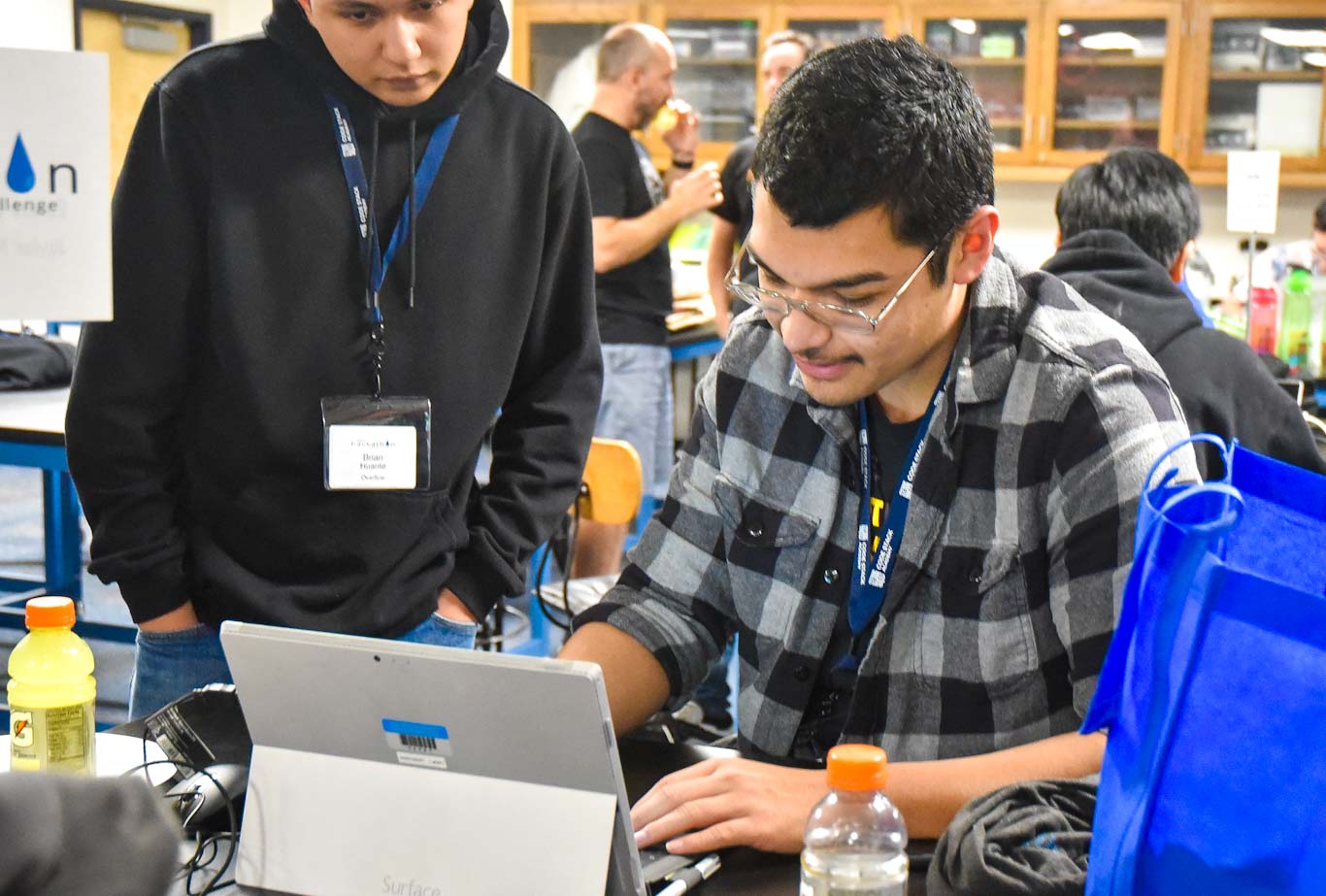
In December 2005, a massive dam failure in Missouri sent more than 1 billion gallons of water coursing through a state park, sweeping away the home of the park superintendent.
No one was killed. But what about next time?
At Saturday’s fourth annual H2O Hackathon, students from Delta College and high schools across the region designed apps to better protect downstream residents from potential dam failures.
“What we did was create an app to find a solution to that problem so it doesn’t happen again,” said Delta student Elijah Branner, who used the Missouri flood as a case study.
Branner and his partner Nathan Ross won the “Golden Spigot Award” in the Hackathon’s college division. The duo, known as the “Coding Robots,” proposed an app called “Dam Spy” that would use real-time data to analyze the risk factor of dams every five seconds. Alerts would be sent to emergency management officials and other users when dangerous conditions are detected.

Elijah Branner, left, and Nathan Ross, right, pose with Delta Professor Pat McClanahan
This was only an exercise, of course, but students found themselves working under some serious time pressure. They weren’t given their assignment until about 8:30 a.m. Saturday. They had only six hours to design their apps and then another hour to prepare presentations before taking the stage and facing a panel of expert judges.
So yes, the day was a bit stressful, but there was no shortage of laughs either.
“It’s really nice getting to see other people with a similar passion,” said Ross. “I would never be in a roomful of similar like-minded people in any other event here in Stockton. I feel very fortunate to be at this event.”

The Delta College contingent
The Hackathon has grown since its inception, but this was the first year Delta sent a large group. Six teams competed, coached by professors Patrick McClanahan (computer science) and Iman Harsini (engineering). Deans Danell Hepworth and Laura Ochoa-Sanchez spearheaded Delta’s involvement.
For McClanahan, the event gave students a chance to apply skills they learned in the classroom to tackle an issue that is more than relevant in the lower San Joaquin Valley: the potential for flooding from upstream reservoirs.
“It’s an incredible opportunity for the students to address real-world problems,” he said. “They can sit in class with me and we walk through a simple programming assignment that we can do in 15 or 20 minutes… but here we have six hours that they can sit and think about what they have to do.”
The event gives students a taste of what it’s like to solve problems – the main goal of any engineer, said Harsini.
“On a Saturday morning, they could be doing a lot of things but they choose to be here and participate in this program,” he said. “That tells me that they’re motivated. I think what they’re doing is great and I hope it doesn’t stop here. I hope this is just the beginning.”

Javier Nunez works on his team's app
Engineering student Javier Nunez saw value in the exercise as he looked forward to his own future.
“Developing something like this could actually save lives,” he said. “That’s something I want to do going forward in my career.”
Organized by iHub San Joaquin, the San Joaquin County Office of Education and Delta College, major sponsors of the Hackathon include Restore the Delta, California Water Service, San Joaquin County WorkNet, Collins Electric, the Port of Stockton, the San Joaquin Partnership, the Central Delta Water Agency, and A.G. Spanos Cos. Click here for more details about the event.






